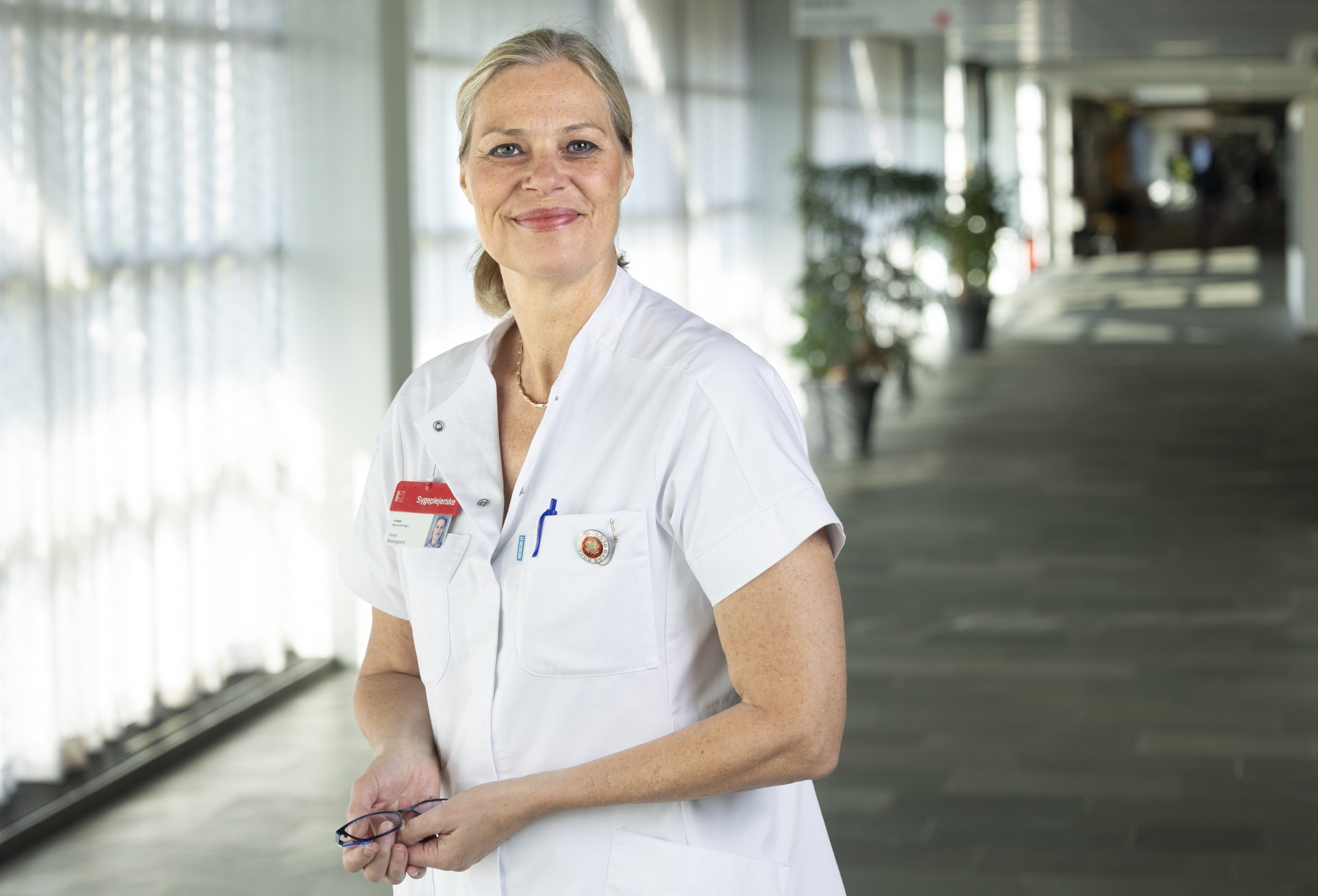The Novo Nordisk Foundation has awarded Anne Brødsgaard, a Professor at Amager and Hvidovre Hospital, a grant of DKK 7.5 million for a research programme that will establish the basis for ensuring that fathers of premature babies are not sidelined and instead have the opportunity to establish early and strong attachment to their child.
A premature baby can pose very special challenges for the parents.
The baby may need help to breathe, have difficulty consuming enough nutrients and be more likely to get sick. Further, the parents can be concerned about how premature birth will affect the child’s long-term development and health.
Fathers of premature babies may experience that there is more focus on the mother’s role and relationship with the newborn than on the father’s needs in this situation.
Anne Brødsgaard, Professor at Amager and Hvidovre Hospital, will address this problem by leading a new research programme. With a grant of DKK 7.5 million from the Novo Nordisk Foundation’s Nursing Research Programme, she and colleagues will carry out a series of research projects with the aim of helping fathers to become more involved so that they have an early opportunity to also be primary caregivers and create a strong and lifelong attachment to their child.
“Fathers are parents on an equal footing with mothers. Fathers cannot breastfeed, but they can be just as sensitive to the child as mothers if they are guided to read their premature baby’s signals. Thus, they can become equal attachment figures and caregivers for the child. This research programme aims to develop an intervention that will ensure that Denmark’s neonatal wards provide opportunities for fathers to receive appropriate support to become fully participating parents in relation to their needs and not predominantly act in support of the mother,” explains Anne Brødsgaard.
New guidelines will ensure greater focus on fathers
In Anne Brødsgaard’s programme, the researchers will initially determine current practice and the fathers’ needs. The research will focus on first-time fathers of premature babies, because as Anne Brødsgaard says, first-time parents are often under pressure and stressed, but the first-time parents of a premature baby have 100 times the burden.
“Fathers of premature babies often develop stress, anxiety or depression because they feel like a secondary parent without the same opportunity as the mothers to take care of their newborn. Much of the problem probably results from the healthcare professionals who, despite having a family-centred approach, focus mainly on the needs of and relationship between the mother and the child,” she says.
Once the current situation has been determined, the researchers will develop new guidelines to be tested in several neonatal wards and maternity wards in hospitals in all five administrative regions in Denmark. The researchers will involve and follow up with the fathers of premature babies with questionnaires and interviews. The aim is for fathers to experience a greater sense of having an important role for the child within their first year of life. The researchers will also monitor the child’s social and emotional development.
“Fathers have special strengths in relation to the child’s development. Having two primary attachment figures bolsters the child’s ability to establish relationships with other people. In addition, signalling to fathers that they are just as important to the child as mothers is also important,” says Anne Brødsgaard.
Intersecting with an important health policy agenda
An important aspect of this research is that it cuts across all sectors of the health system.
This means that the new principles apply not only to the neonatal and maternity wards but also to the municipal public health nurses.
The long-term aim of the research is to create the framework for a new approach to the fathers of premature babies.
Anne Brødsgaard says that the research programme thus intersects with an important health policy agenda, which has recently ensured fathers 11 weeks of paternity leave.
“All these factors point in the direction of focusing on ensuring that fathers experience the same sense of commitment, care, attention and confidence in their abilities as parents that mothers do. Both the previous parental leave rules and the attitudes of the healthcare professionals have positioned the father as a support person for the mother, but we must get away from that. The child’s ability to develop relationships with other people as an adult requires a safe and secure base, and the latest research shows that fathers can provide that just as well as mothers. Communicating to fathers that they are just as important to the children as the mothers is also important,” she concludes.
About the Novo Nordisk Foundation Nursing Research Programme
The Novo Nordisk Foundation Nursing Research Programme was launched in 2015. The Foundation allocated up to DKK 75 million to the Programme for the years 2015–2025 to support 10 research programmes with grants of up to DKK 7.5 million per project.
The Programme aims to provide nurses experienced in research leadership with an opportunity to apply for major nursing research projects with the potential to create value within both research and patient care.









